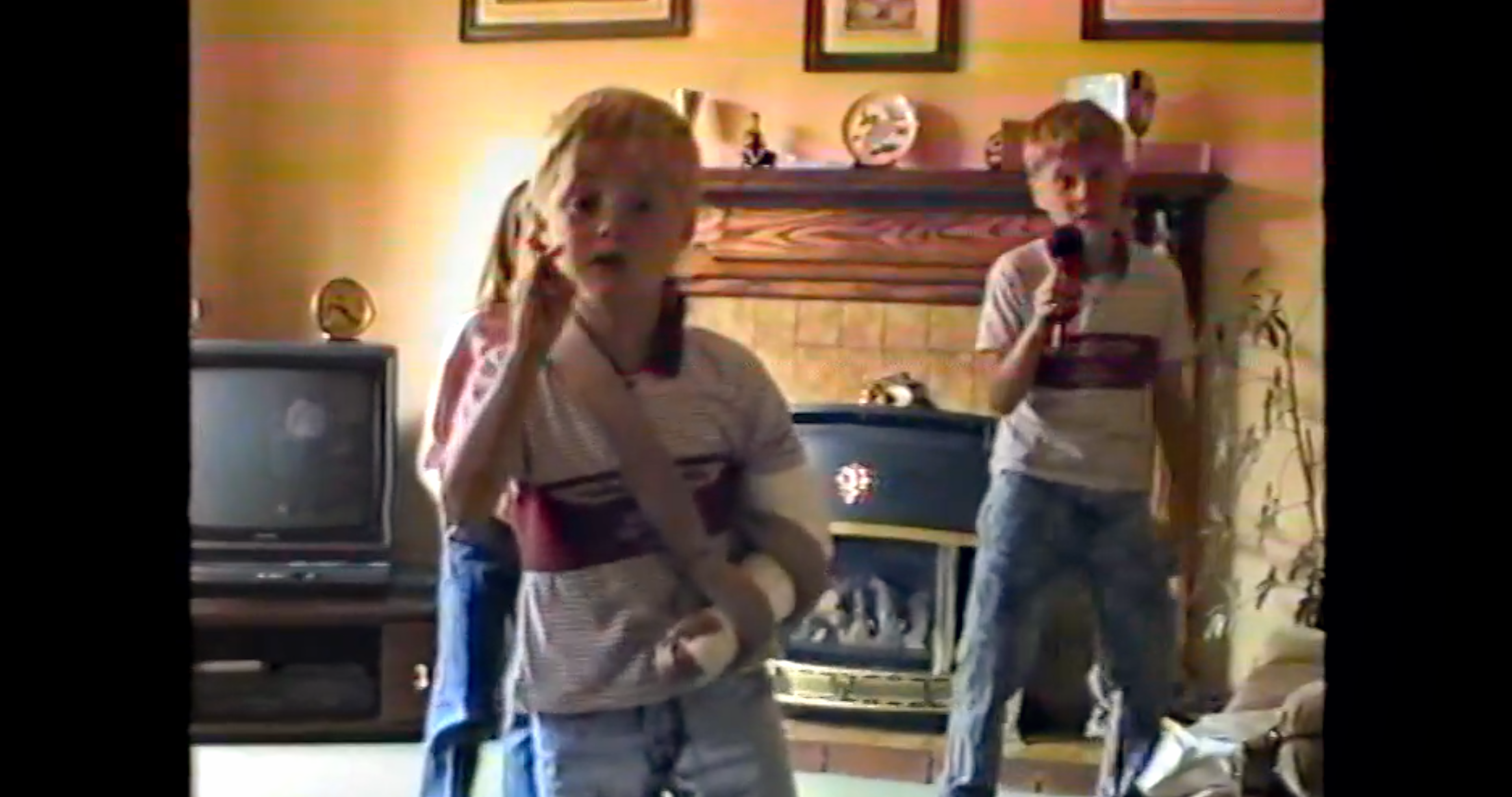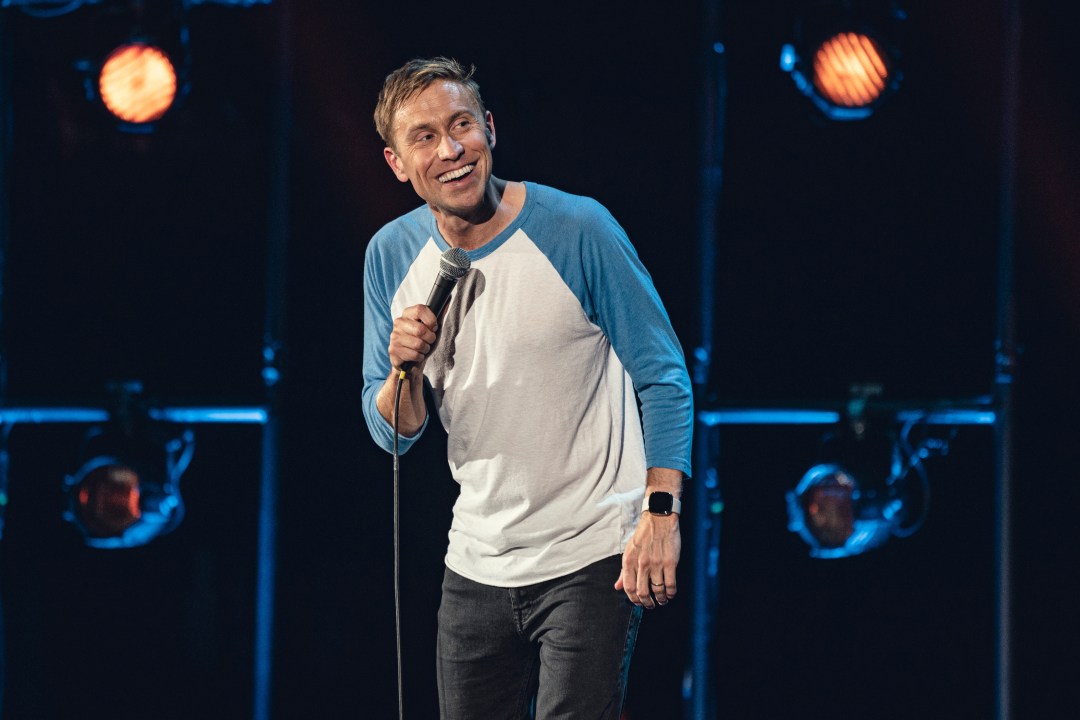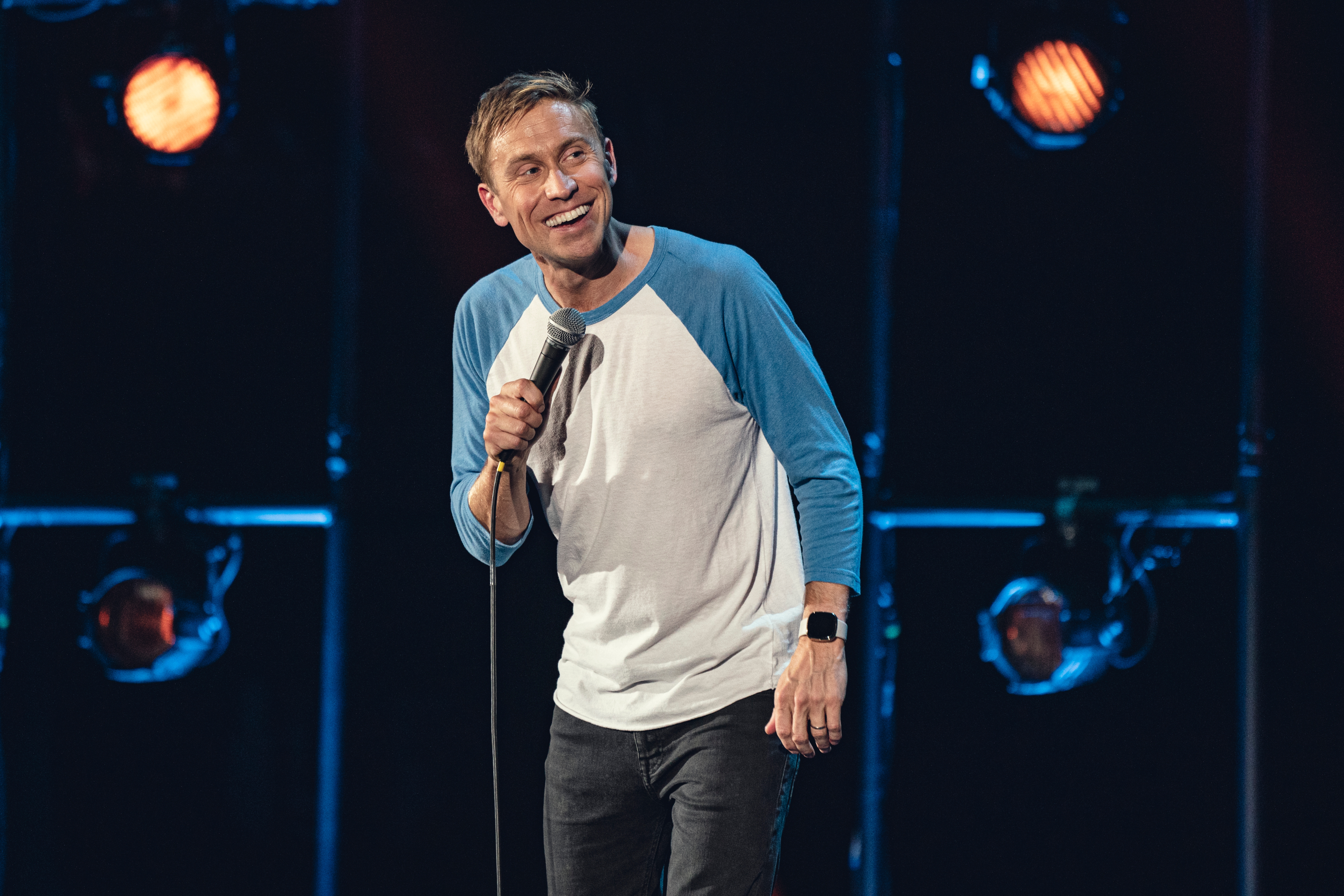After more than a decade on comedy’s A-list, Russell Howard has a decent claim to being our best known ‘arena’ comic. Yet last July, in the midst of an already strange year, the rockstar comedian – used to selling out venues across Britain – found himself having to reconsider his definition of a stadium gig: as he performed to a sparsely-arranged audience of 2,000 spread across a 27,000 capacity football stadium.
Tiny numbers by Russell Howard standards. But the gig itself still sits in a class of its own: as one of the largest live shows to take place in the gap between Britain’s spring and winter lockdowns. Even for a workaholic comic, that’s quite a coup. And it’s also become the subject of Howard’s first backstage documentary – released this week as a companion piece to his latest comedy special.
The special – titled Lubricant – will be his second show on Netflix. It’s another impressive career mark for a naturally self-deprecating comic who rose up via the student-centered stand-up scene of the early 2000s. His early career – which also features in the documentary – saw him spend much of his 20s driving from one provincial campus to the next, performing alongside the likes of Jon Richardson and John Oliver (the one member of the pack whose fame, at least in the US, outstrips Howard’s). By the end of the decade, he’d swapped student union stages for prime time TV and, from there, to worldwide tours.
The documentary goes back before that, delving into his childhood to show how Howard first got into comedy. Thanks to snippets of home videos, we see a pre-teen Howard – sporting immaculate 90s curtains and the kind of retro Liverpool football shirt that would now fetch a packet on eBay – performing proto-routines, and ironic karaoke routines, to his family. In talking head interviews, his parents recall the times that his humour helped the family get through darker patches (namely his brother’s diagnosis with epilepsy) or speak about the thrill of witnessing his first gigs. It’s interesting enough, even if – at times – the tone feels like one of those deliberately gushing documentaries broadcast about someone about to marry into the Royal family.
When we speak on the telephone days ahead of the launch, the ever-spritely Bristolian is excitedly recapping the story of his pandemic year. Not just the stadium gig or his homemade television series – filmed in his parents’ house with profits going to NHS charities – but also his seriously lucky break: the chance to escape lockdown Britain to embark on a government-approved tour of Covid-free New Zealand.
‘How
was the hotel quarantine?’ I ask – wondering whether two weeks of enforced isolation turned out to be a boon or bust for joke-writing. ‘The whole thing was just really surreal,’ he says. ‘I remember I arrived at an empty airport to be met by soldiers.’ Even in this seemingly dystopian scene, though, the Kiwis took time to enquire whether ‘guests’ were worried about their mental health. Using more colourful language, Howard jokes that his main concern was that he’d end up over-reliant
on self-pleasure.
For
a UK comic who’d already endured two lockdowns and months of irritating restrictions, it must have been a surreal experience: suddenly playing to packed rooms of mask-free punters. But as the documentary shows, it wasn’t always so straightforward. At one memorable
moment, his entire audience receives the same government text informing them of an impending three-day lockdown (the result of a single case being detected in the city).
‘They literally found out during the interval,’ he recalls, comparing the reaction to desolate football firms who find out via text that a rival team has scored. ‘The second half had this completely different energy, and I just had to muddle through regardless.’ Was that his strangest pandemic gig? Not quite, he says – instead imparting that honour to a socially-distanced comedy festival that took place somewhere in the woods by Somerset.
Like a lot of UK events, the festival had been organised outside to avoid the punitive restrictions that remained on indoor arts events even after pubs reopened. Thanks to mercifully dry summer weather, being outside shouldn’t have been an issue. But there was a slight catch. ‘Next to the gig, there was a layby where cars were flashing their lights at each other,’ he says. ‘I basically spent the whole gig worrying about disrupting doggers.’
While the pandemic forms much of the backbone of the documentary, it’s mentioned much less in Lubricant. Instead, the hour-long set deals mainly with family in-jokes and the memories that give them meaning. Was that a conscious decision, I ask, to avoid the pandemic on stage? Partly, he admits – not least as he didn’t want to be immortalised on film telling predictable jokes about toilet rolls.

‘I do have at least one pandemic joke though,’ he says, with some glee in his voice. Having watched the special, I know exactly what’s coming. It’s a reference to an opening routine in which Howard – in wonderfully-animated style – expresses his incredulity that the rap song WAP (whose hyper-sexualised lyrics include an instruction to ‘spit in my mouth’ amongst other things) became the best-selling record in a global pandemic. ‘For me that just summed up what a weird time it was,’ he says.
By contrast, he says, if Lubricant has an overarching theme it’s about taking the time to celebrate those things that we missed during a year of disruption. ‘It’s a love letter to laughter,’ he enthuses – adopting that portentous Ted Talk voice that comedians often use for the emotional bit at the end of their sets. ‘It’s a show about the ordinary people who make our lives extraordinary – and that special humour you get from being with people you adore. Whether that’s your family or your mates.’
Did he not think about filming his socially-distanced stadium gig too – as a historical memento of the pandemic? ‘Christ, no,’ he laughs. It wasn’t a complete disaster, he clarifies – just a slightly mad decision and not quite up to Netflix standard. Like a lot of things from the last 18 months – that ‘alone time’ in hotel quarantine for one – he’s taken the decision to leave it in the past. It’s back to the big time, now.
Russell Howard’s stand-up special Lubricant (and the accompanying documentary ‘Until the Wheels Come Off’) arrives on Netflix on 14 December.







Comments